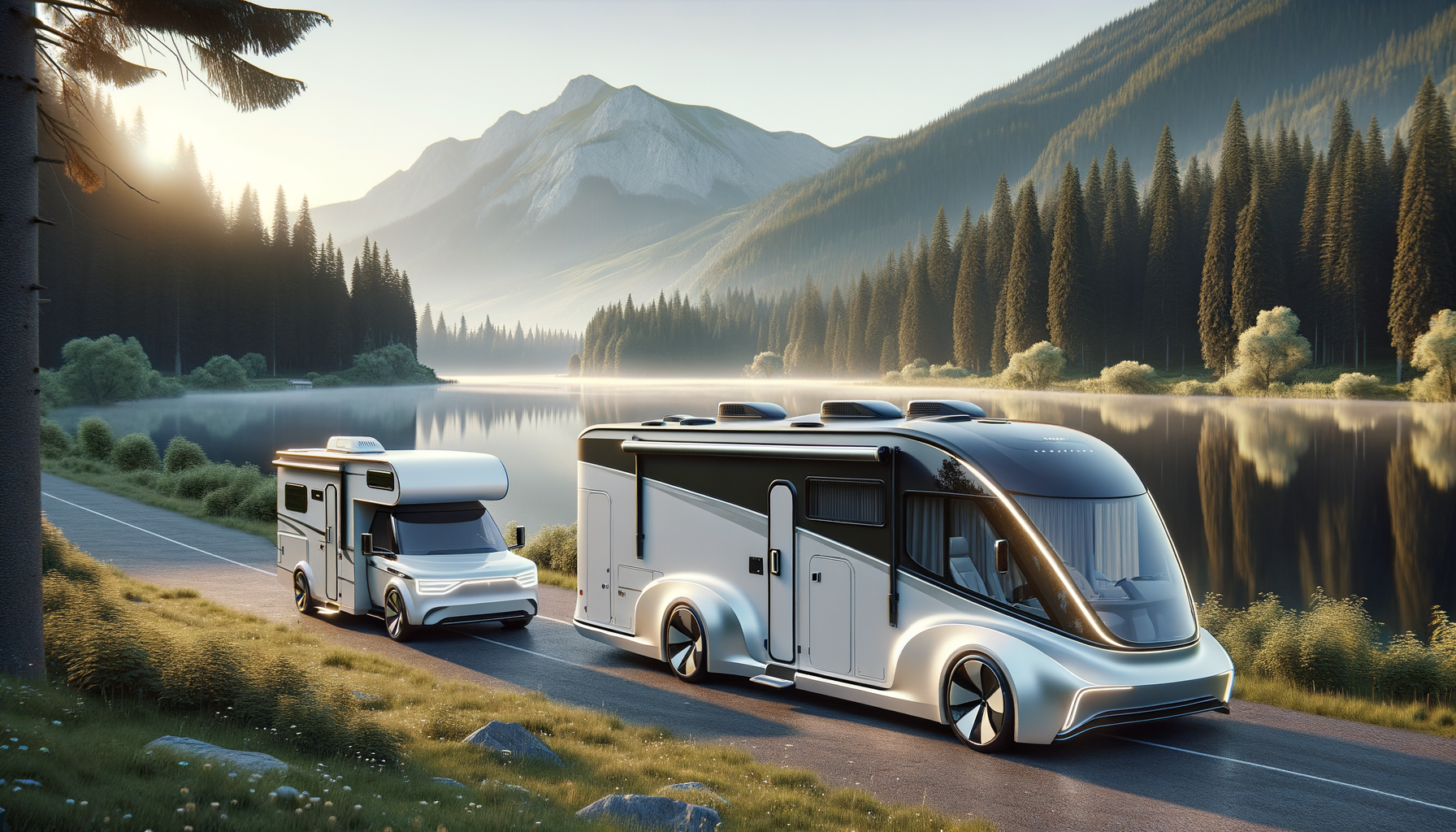The Rise of Electric Camper Vans
In recent years, the automotive industry has seen a significant shift towards sustainable and eco-friendly transportation solutions. Among these innovations, electric camper vans have emerged as a compelling choice for travelers seeking a quieter, more environmentally conscious way to explore the open road. As traditional campers rely heavily on fossil fuels, electric alternatives offer a cleaner option that reduces carbon footprints while still providing the comforts of home on wheels.
Electric camper vans are designed to combine the functionality of a traditional camper with the innovative features of electric vehicles. This fusion allows for a more serene travel experience, as electric motors operate with minimal noise compared to their combustion engine counterparts. As a result, travelers can enjoy the tranquility of nature without the constant hum of an engine, making it easier to connect with the surroundings and enjoy the journey.
The appeal of electric camper vans extends beyond their quiet operation. They are also equipped with advanced technology that enhances the overall travel experience. Features such as regenerative braking, solar panels, and energy-efficient appliances contribute to a more sustainable and self-sufficient journey. These vehicles are not only a testament to technological advancement but also a step towards a greener future in travel and transportation.
Technological Advancements in Electric RVs
Electric RVs represent a significant leap forward in the integration of technology in recreational vehicles. The technological advancements in these vehicles are not limited to their propulsion systems. Many electric RVs are equipped with state-of-the-art features that enhance both convenience and sustainability. For instance, regenerative braking systems help to recharge the battery while driving, extending the range and efficiency of the vehicle.
Furthermore, many electric RVs come with integrated solar panels that provide an additional source of power. This feature is particularly beneficial for long trips, as it allows travelers to harness renewable energy to power their appliances and devices. Energy-efficient appliances, such as LED lighting and low-energy consumption refrigerators, are also common in these vehicles, further reducing their environmental impact.
The incorporation of smart technology is another notable aspect of electric RVs. Many models offer advanced navigation systems, real-time energy management tools, and connectivity features that allow users to monitor and control various aspects of the vehicle from their smartphones. This level of integration not only enhances the user experience but also promotes a more efficient and enjoyable journey.
Environmental Impact and Sustainability
One of the primary motivations for the development and adoption of electric camper vans is their potential to reduce the environmental impact of travel. Traditional campers and RVs are known for their high fuel consumption and emissions, which contribute significantly to air pollution and climate change. In contrast, electric camper vans produce zero tailpipe emissions, making them a much more sustainable option for eco-conscious travelers.
Electric camper vans also promote sustainability through their use of renewable energy sources. Many models are equipped with solar panels, which reduce the reliance on external power sources and allow travelers to generate their own electricity. This capability not only decreases the carbon footprint of the vehicle but also provides a level of energy independence that is particularly valuable in remote or off-grid locations.
Additionally, the production of electric vehicles is becoming increasingly sustainable, with manufacturers focusing on eco-friendly materials and processes. The shift towards electric camper vans is a positive step towards reducing the environmental impact of recreational travel, aligning with broader efforts to combat climate change and promote sustainable living.
Challenges and Considerations
While electric camper vans offer numerous benefits, there are also challenges and considerations that potential owners should be aware of. One of the primary concerns is the limited range compared to traditional campers. Electric vehicles typically require more frequent charging, which can be a challenge in areas with limited charging infrastructure. However, the growing network of charging stations and advancements in battery technology are gradually addressing this issue.
Another consideration is the initial cost of electric camper vans, which can be higher than their conventional counterparts. This is largely due to the cost of batteries and advanced technology integrated into these vehicles. However, the long-term savings on fuel and maintenance, coupled with potential government incentives for electric vehicle purchases, can offset the initial investment over time.
Lastly, potential buyers should consider the availability of service and repair facilities for electric vehicles. As the market for electric camper vans grows, so does the need for specialized technicians who can service these vehicles. Ensuring that there are adequate support and maintenance options available is crucial for the long-term viability of owning an electric camper van.
The Future of Electric Camper Vans
The future of electric camper vans looks promising, with continuous advancements in technology and growing interest from consumers. As battery technology improves, we can expect electric camper vans to offer longer ranges and shorter charging times, making them even more practical for long-distance travel. Additionally, the expansion of charging infrastructure will further support the widespread adoption of these vehicles.
Manufacturers are also exploring innovative designs and features to enhance the appeal of electric camper vans. Concepts such as modular interiors, customizable layouts, and smart home integration are being developed to cater to the diverse needs of modern travelers. These advancements will not only improve the functionality of electric camper vans but also make them more attractive to a broader audience.
Overall, the shift towards electric camper vans is part of a larger trend towards sustainable and eco-friendly transportation solutions. As more people become aware of the environmental impact of traditional travel methods, the demand for electric alternatives is likely to increase. This shift represents a significant opportunity for the travel and transportation industry to embrace sustainability and innovation, paving the way for a cleaner and quieter future on the road.




Leave a Reply